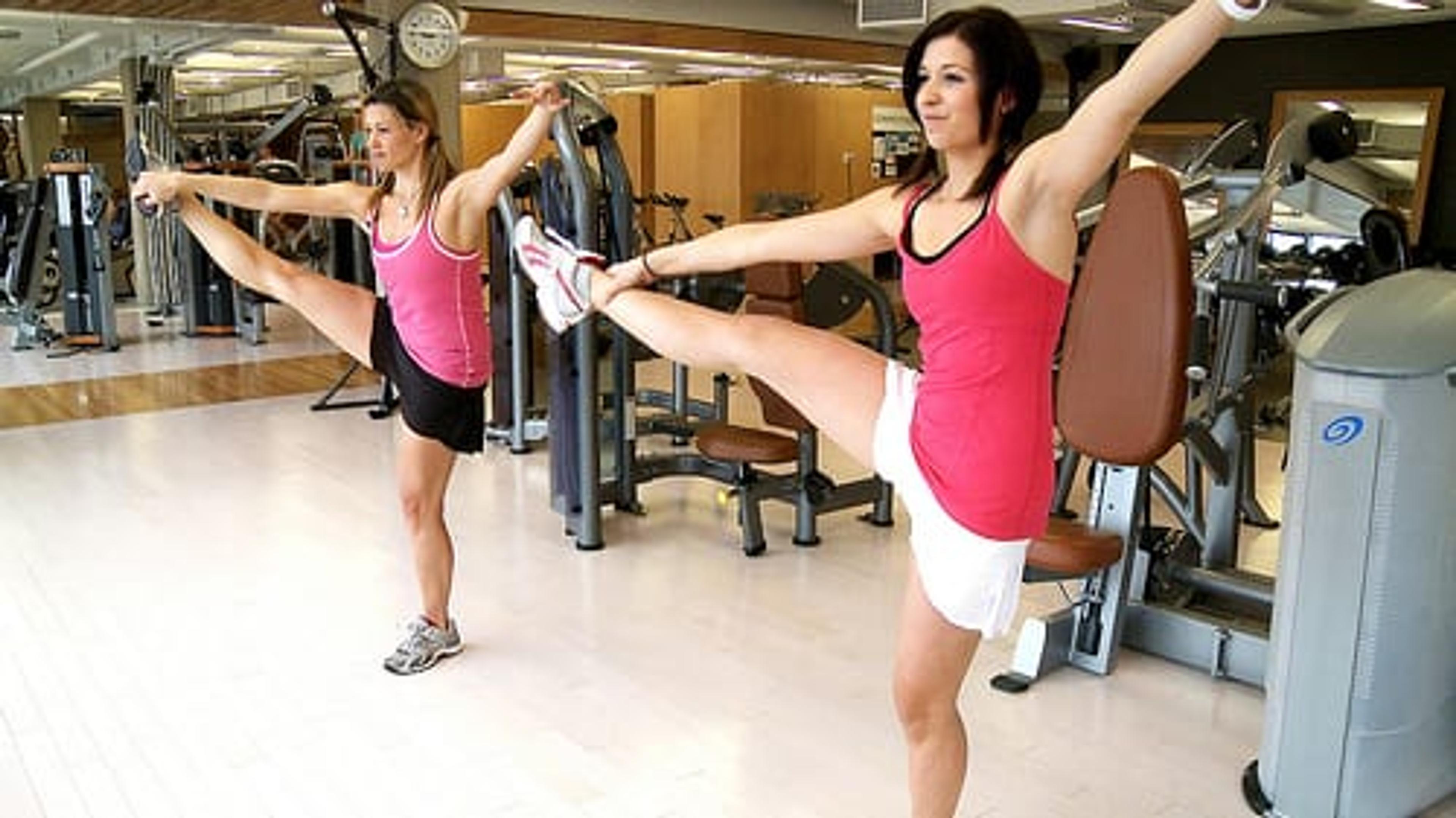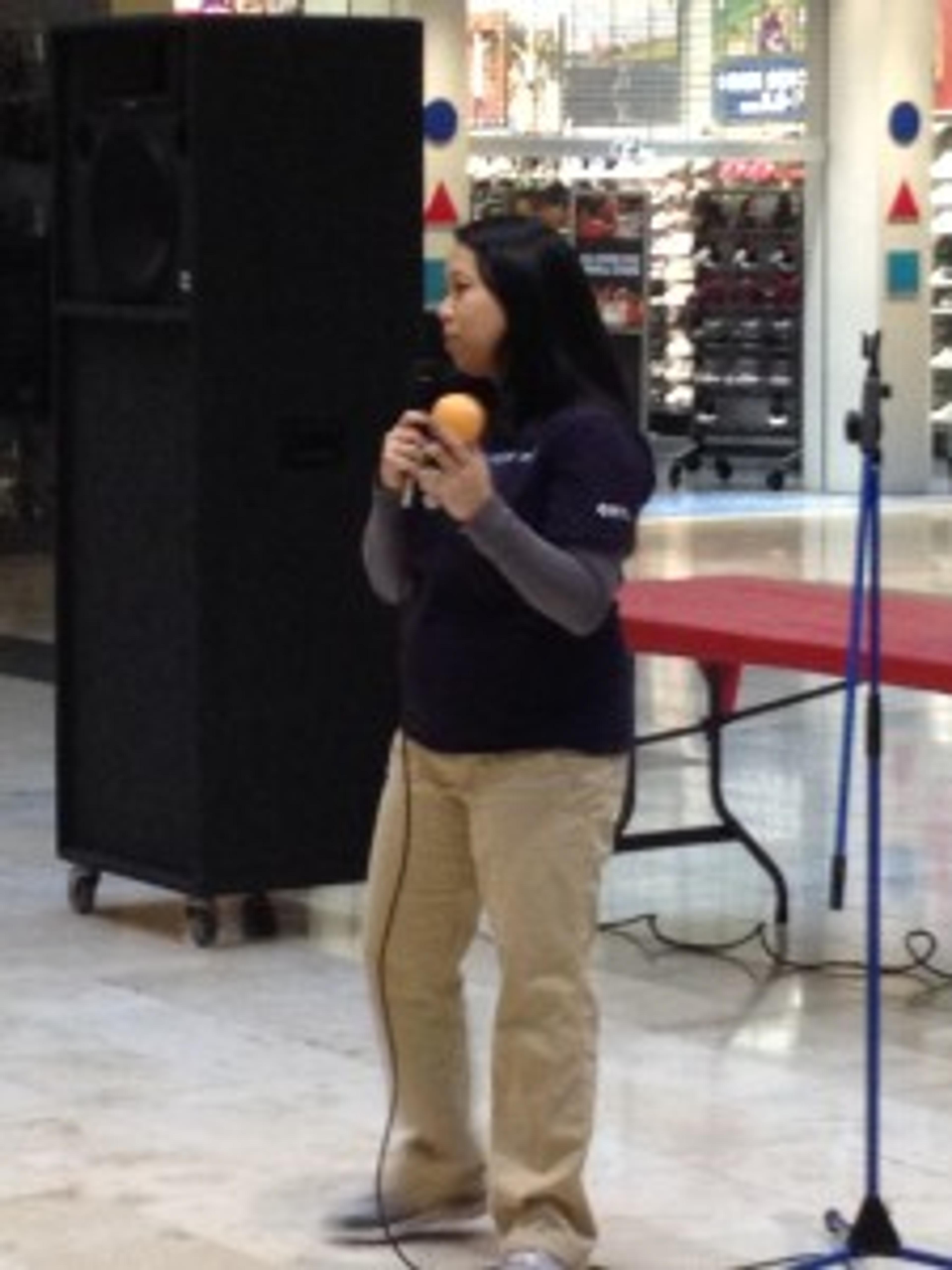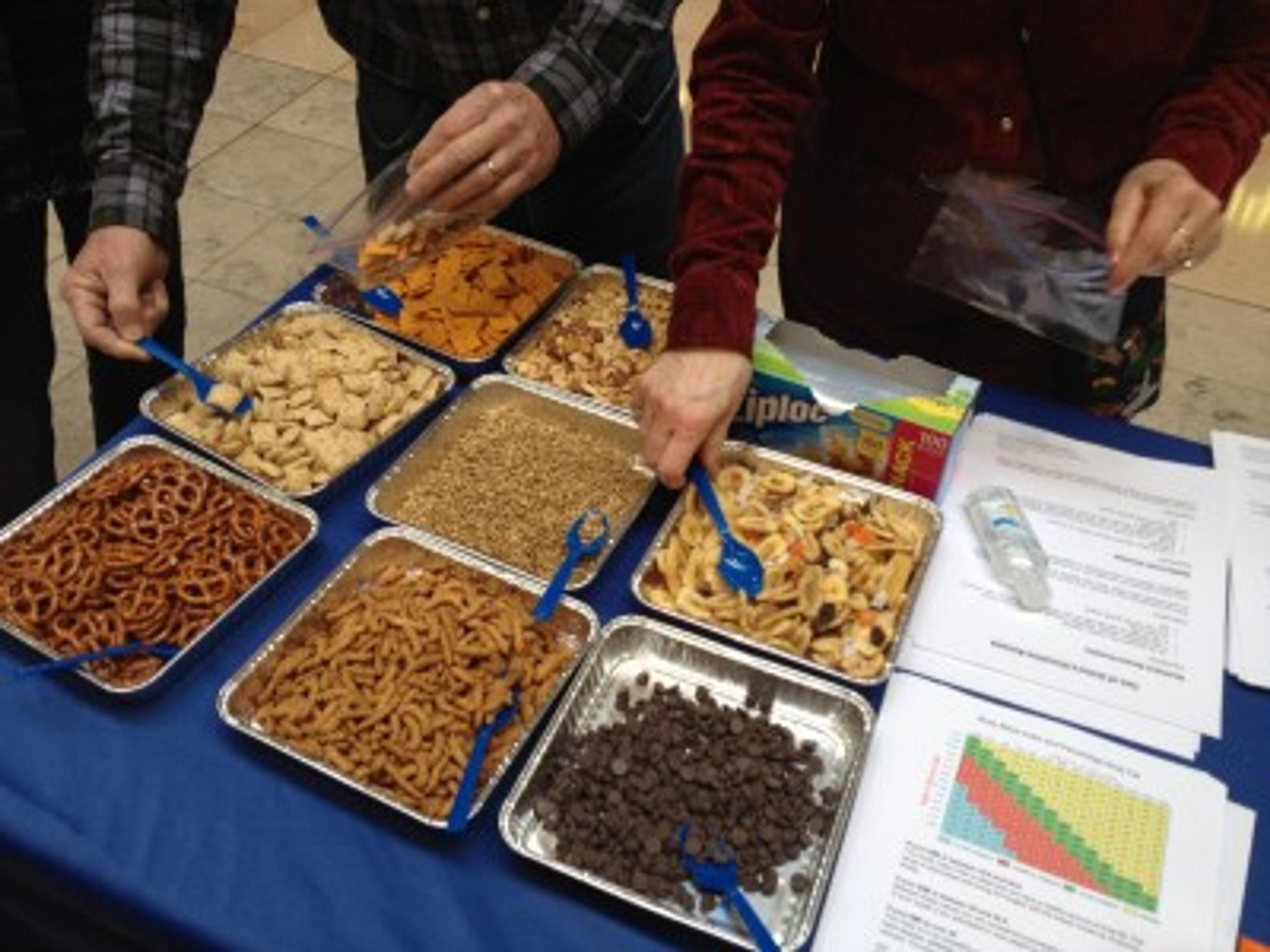Exercise Does a Body Good: How to Fuel and Replenish Your Body for Workouts
Registered Dietician
| 5 min read

I had the pleasure of presenting at the Winter Warm-Up midpoint event recently at the Lansing Mall. I spoke about the importance of exercise and how to fuel your body before and replenish your body after a workout. I also had a table where I set up a trail mix bar so everyone could make their own trail mix. Trail mix is a great snack to enjoy before or after a workout.
The Winter Warm-Up is a free program that offers resources and other help to encourage people to adopt positive habits like exercise and healthy eating into their daily routines. There are three more weeks left in the Winter Warm-Up events that occur every Saturday in Lansing. I thought that it would be a great opportunity to share this information here.
The beauty of exercise nutrition is that what you need before a workout is very similar to what you need after. The most important thing to remember is to listen to your own body. I know for me, I can’t have too much to eat before a workout or else I cramp. After a workout is my time to really get in some good nutrition.
Fueling Your Body
Here are some things to keep in mind before you work out.

Discussing the importance of eating nutrition rich foods before and after a workout
Hydration — Water is essential. As many of you know, you should get at least half your body weight in ounces of water or about 64 ounces of water daily. While you exercise, keep a bottle of water handy so you can replenish some of the water you lose to sweat.
Timing — What you should eat before a workout will depend greatly on how long it was since you last ate and what you had to eat at that time. My recommendation is if it has been longer than three or four hours, be sure to have somthing to eat before your workout.
Carbohydrates — Carbs are the body’s main fuel and energy source. Ideally, these would come from fruit, whole grains or dairy. My recommendation is to keep it to one to three servings, or 15 to 45 grams of carbs depending on your height, weight and what kind of exercise you will be doing and for how long. If you’re a small body type and plan to do a less-intense workout, you’ll need less, whereas you’ll need more carbs if you are taller and plan on exercising harder or for a longer period of time.
Protein — Protein is another main nutrient that is important for the muscles of the body. Protein acutally takes longer to digest than carbohydrates, so by adding some protein it will help sustain you throughout your workout.
I recommend trying some of these pre-workout snacks:
- An apple with peanut butter
- Half a sandwich
- Low-fat Greek yogurt
- Trail mix
Or try my healthy green smoothie recipe below. Liquid nutrition seems to work best for me before a workout because it digests quickly and it is not too much food, so no cramping.
Healthy Green Smoothie
Ingredients:
- 1 cup of clean spinach leaves (fresh or frozen)
- 1 banana
- ½–1 cup of fresh or frozen fruit (I prefer mangos, pineapples or lighter-colored fruit, so I can see the green color of the smoothie)
- 1 cup of light or low-fat milk of your choice (soy, almond, rice, coconut or cow’s milk
- 1/2 cup low-fat Greek yogurt
- Ice
Preparation:
Place all ingredients into a blender and blend on high for about 40 seconds or until smooth and frothy. Pour into glasses and serve immediately. Enjoy!

Trail Mix Bar (from top left to bottom right): baked cheese crackers, mixed nuts, shredded wheat cereal, sunflower seeds, dried tropical fruits, pretzels, sesame sticks, and dark chocolate chips
Replenishing Your Body
Getting the workout in is obviously important. And now you know that having enough fuel and energy before the workout is too. But making sure you replenish your body after is just as important and often gets overlooked.
Hydration — This is so important. When you exercise, you lose a lot of water through sweat. Since our bodies are 70 percent water, you can easily see why staying hydrated is good for you. A general rule of thumb is that you should get 16 to 32 ounces of water after every hour of exercise. Sometimes I enjoy a coconut water for flavor. Sports drinks are not actually necessary, unless you are an athlete in training. Also beware because some sports drinks are filled with sugar and unnecessary calories.
Timing — Since exercise is a natural appetite suppressant, you may not be hungry right after a workout — and that’s OK. So start with some water and maybe a shower, but make sure you do consume something after your have burned all those calories. If you’re starving after a workout, do not overeat or eat too quickly, since this will throw your workout away. Instead of just snacking after a workout, another idea is to enjoy your next meal.
Carbohydrates — Once again, the same pre-workout rules apply: You want to get some good carbs with fiber into your body. Fruits, veggies, whole grains and dairy are great options. The nice thing about dairy, like low-fat milk or low-fat yogurt, is it also contains protein.
Protein — Lean protein sources will help you rebuild your fatigued muscles and help keep you satisfied. If it is not time for a meal after your workout, try some of these post-workout snacks (or make them into a meal):
- Low-fat white or chocolate milk
- The green smoothie recipe above
- Peanut butter and bananas on rice cakes or whole wheat crackers (one of my faves)
- Trail mix
- Hummus and whole wheat pita with cucumbers
- Low-fat yogurt with berries
- Half a tuna sandwich with lettuce and tomato on whole wheat bread
- Turkey, apple and Laughing Cow cheese roll-ups (one of my favorite snacks). All you do is take about 3 slices of lean, low-sodium turkey, spread the soft cheese inside a turkey slice and throw in some apple slices and roll it up. Delicious!
Don’t forget to take care of your body. It is the only one you have. What do you enjoy before or after a workout?
Photos by watchmojo and Tom Derocha





